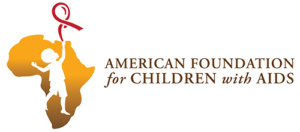Language – Lingala
For a list of basic words in Lingala, click here.
Lingala is one of the principal languages spoken in the Democratic Republic of Congo (DRC), (Congo-Kinshasa), and the Republic of Congo (Congo-Brazzaville). The Lingala of today is based on Bobangi, spoken by the people (bangala) who lived along the Congo River between Lisala and Kinshasa. Bobangi was the regional trade language until the arrival of the Europeans in the late nineteenth century.
The colonial administration needed a common language for the region and started to use the language for missionary and administrative purposes, calling it Bangala to set it apart from Bobangi. Compared to local Bantu languages, its sentence structure, word structure and sounds were simplified and its speakers freely borrowed words and constructions from other languages they knew. It became the language of the army, police, administration, education, politics, media, and missionaries.
Lingala language can be divided into four variations: Standard Lingala, Spoken Lingala, Kinshasa Lingala, and Brazzaville Lingala.
Standard Lingala is mostly used in educational and news broadcasts on radio or television, in religious services in the Catholic Church and is the language taught as a subject at all educational levels. Standard Lingala is historically associated with the work of the Catholic Church and its missionaries. It is largely used in formal functions.
Spoken Lingala is the variation mostly used in the day-to-day lives of Lingala speakers. This variation of Lingala is historically associated with the work of Protestant missionaries. Spoken Lingala is largely used in informal functions, and the majority of Lingala songs use Spoken Lingala over other variations. Modern Congolese music, called soukous, is one of the most popular in Africa and is a true source of enrichment of the language.
Kinshasa Lingala and Brazzaville Lingala are the dialects from the capitals of both Congos. They are both heavily influenced by other Bantu languages as well as French (the official language of both countries). They both have many borrowed words from those languages, as well as a simplified phonology and grammar. Over 10 million people speak Lingala.
Information supplied by http://dictyon.net

